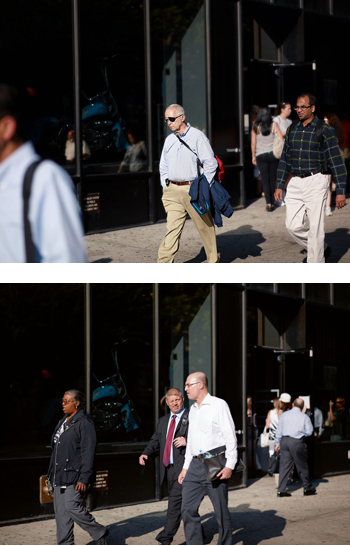
Paul Graham's "The Present" - TIME's Best of 2012: The Photobooks We Loved
by Aaron Schuman
December 2012
This essay was originally published inTIME's Best of 2012: The Photobooks We Loved.
There's a brilliant scene in Foutaises (1990), a short film by Jean-Pierre Jeunet, in which a man sits at a corner café. He glances down the street to his right and sees a blind man walking towards him; he then looks down the street to his left, does a double-take, and is amazed to see another blind man walking towards him. Realizing that he's the sole person witnessing this, he does the calculations, but nothing to stop the chain of events. At the corner, before his eyes only, the two blind men crash into one another (Watch it here, 2:33 - 3:06).
Looking through Paul Graham's The Present, I was reminded of this scene, and particularly of its poignancy in relation to photography. Firstly, as in previous works by Graham, there are subtle motifs throughout of the blind and the blinded, and of the privileged position of the photographer when observing at arms-length. But I had always regarded the climax of Jeunet's vignette as a kind of 'decisive moment'; the instant when a still-camera's shutter would most obviously be triggered. Yet Graham's use of variant multiple images—and his application of subtle shifts in focus, composition and time within such photographic sets—emphasize that time itself is not incremental but fluid, and that photography possesses the power to tap into not simply the single passing instant, but the ever-present flow of time as well. For those who thought that street-photography peaked in the days of Cartier-Bresson, Frank, Winogrand or Meyerowitz, The Present testifies that this genre, this medium, and the photobook still have incredible potential for growth, originality, and immediacy; here Graham proves that, for photography today, there is still much more than a shimmer of possibility.
Aaron
Schuman Photography
Copyright © Aaron Schuman, 2012. All
Rights Reserved.
This site and all of its contents may not be reproduced, in whole or in
part, in any form, without the written permission
of Aaron Schuman, and other additional artists involved in the production
of specific works exhibited on this site.